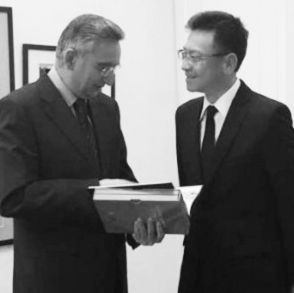
Rawalpindi – Indonesia can be used as a gateway to Association of Southeast Asian Nations (ASEAN) countries for export of Pakistani products, Ambassador (designate) to Indonesia, Muhammad Aqil Nadeen said.
 ASEAN countries include, Brunei, Indonesia, Malaysia, Philippine, Singapore, Thailand, Vietnam, Laos, Burma and Cambodia. Addressing at the Rawalpindi Chamber of Commerce and Industry, Muhammad Aqil Nadeem said that Pakistan and Indonesia had already reached Preferential Trade Agreement (PTA) for export of over 300 items from Pakistan, in the sectors like fruit, poultry, surgical goods, meat, textile, pharmaceuticals and tourism.
ASEAN countries include, Brunei, Indonesia, Malaysia, Philippine, Singapore, Thailand, Vietnam, Laos, Burma and Cambodia. Addressing at the Rawalpindi Chamber of Commerce and Industry, Muhammad Aqil Nadeem said that Pakistan and Indonesia had already reached Preferential Trade Agreement (PTA) for export of over 300 items from Pakistan, in the sectors like fruit, poultry, surgical goods, meat, textile, pharmaceuticals and tourism.
He pointed out that the products under the label of “Hilal” are getting popularity with the passage of time and it was the high time to arrest the opportunity in Indonesa and rest of the Nations in ASEAN fold.
He said under the PTA Pakistan had also been excluded from the Calling Visa Country list by Indonesia which must be utilized by the traders for the promotion of exports to the brotherly country. “Indonesia along with ASEAN countries are huge markets with great potential for Pakistani products and businessmen should focus on these countries to promote trade and exports,” he said. “I must say a big achievement and this will increase people-to-people contacts.” He said Indonesia and Pakistan will add more products to enjoy lower tariffs under the existing PTA soon. He informed that Indonesia with 250 million inhabitants was the largest Muslim country and provided easy access to Pakistan to over $2 trillion ASEAN market.
He stressed that Pakistani businessmen should pay more attention to this important region for maximum exploitation of all untapped trade opportunities. He assured that Pakistan’s mission would share trade inquiries and business related information with RCCI so that its members could take advantage of the available opportunities for promoting trade and exports with Indonesia.
On the occasion, Zahid Latif Khan, President, RCCI said that Pakistan and Indonesia enjoyed cordial relations and there was a need to transform these good relations into thriving bilateral trade, investment and joint ventures between the two countries. He said both countries should provide better market access to each other’s private sectors, grant more tariff concessions and remove all non-tariff barriers that will help in promoting bilateral trade up to actual potential.




